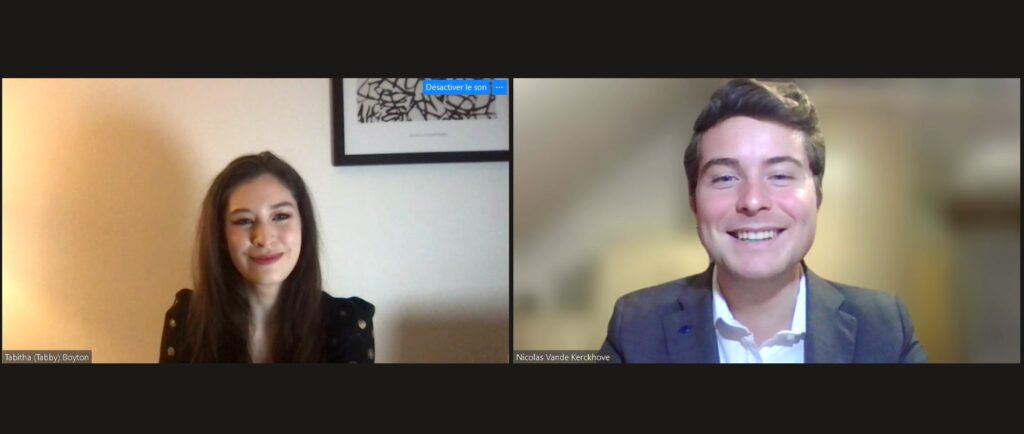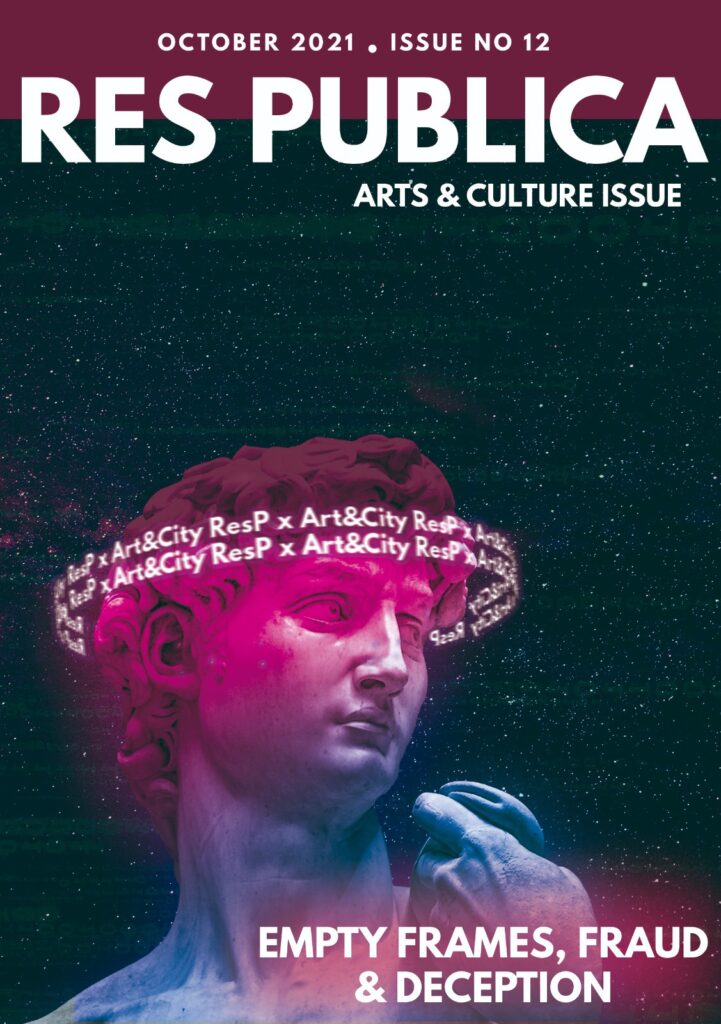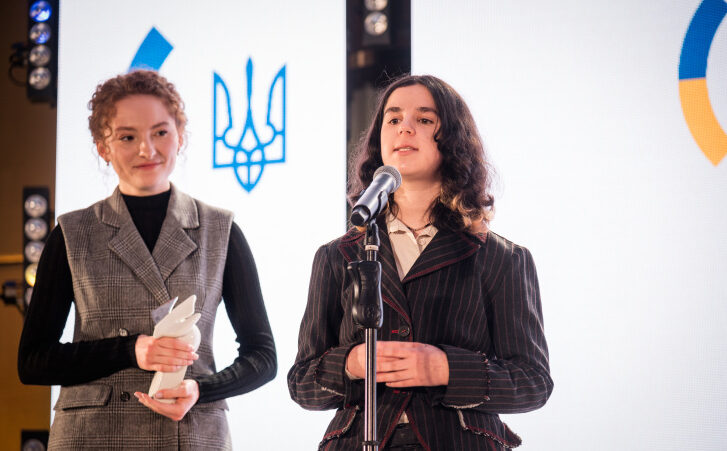
Young European Ambassadors and Res Publica: a partnership in interdisciplinary knowledge and exchange
Nicolas Vande Kerckhove, Young European Ambassador (YEA) from Belgium, interviews Tabitha Isabella Boyton, Founder and Editor in Chief of Res Publica
Before we open the discussion, a few words from our interviewer, Nicolas Vande Kerckhove, about Res Publica, and the YEAs’ partnership with the magazine:
“Since I joined the YEAs’ network, I have tried to embrace its conceptual guidelines as much as possible, which is, let’s recall, a non-political, voluntary, vibrant communication network connecting and building bridges of friendship among young people from Europe to work together for a better future. Since then, I have put in place many projects, including one that is particularly meaningful to me: the creation and management of partnerships with two magazines (Le Parrhèsiaste and Res Publica).
Today, I am interviewing Tabitha Isabella Boyton, the bubbly editor-in-chief of one of those two magazines, Res Publica. This partnership was created at the initiative of two protagonists: Nadia Golotchoglou and I. Nadia, a former public relations manager of this magazine, drew the attention of the YEAs to the quality of the articles written by the Res Publica team. Impressed by their articles and their professionalism, I decided to take the plunge and offered to create a new partnership in order to pass on many of Res Publica’s values to a young generation of Europeans ready to question their background and expand their knowledge. In addition, some Young European Ambassadors – especially from Moldova – have already published articles and thus contributed directly to Res Publica since then.”

Nicolas Vande Kerckhove: You should know that YEAs love your magazine. Could you please introduce yourself?
Tabitha Isabella Boyton: Thank you so much – that’s incredibly kind! We have really enjoyed working with the Young European Ambassadors and I am immensely grateful for the opportunity to collaborate and conduct this interview! A huge thank you to Nadia Golotchoglou for the introduction.
Originally from Hong Kong, I am in my final year of university reading Law with Politics and International Relations (Hons) LLB at the New College of the Humanities at Northeastern University in London. In parallel, I am an Ambassador for the Oxford Forum for International Development and Northeastern University Women Who Empower, alongside being a Member of the European Youth Parliament. In my spare time, I do pro bono work for Pacific Chambers and The Edict (a legal start-up based in the UAE).
I also wanted to shine a light on my Deputy Editors: Violetta Skittidi, Barbara Listek and Alex Tambiev, as Res Publica really wouldn’t be able to function without all their hard work and enthusiasm.
You founded Res Publica well into the pandemic. What was your main motivation for starting it, and how has that changed over time? How did the pandemic affect your ability to get the project started and off the ground? Did the increased digitization of everyday life help you reach a wider audience?
Res Publica was founded over the summer holidays of 2020, mainly in response to racism and sexism experienced in and out of my professional life. Therefore, Res Publica was fostered with the objective of providing an engaging, informative and thought-provoking socio-political commentary, as well as establishing an academically rigorous platform where ideas and concepts can be debated and explored. As such, Res Publica hopes to stimulate, invigorate and encourage readers to consider contrasting opinions and be inspired to take the discussion further by reflecting and formulating more nuanced perspectives.
Unfortunately, during the pandemic, there was a distinct lack of both functioning university societies and platforms for students to contribute to outside our digital classrooms. Therefore, in times of such uncertainty and polarisation, I thought it was essential to maintain a productive exchange of thoughts, perspectives and ideas that are interdisciplinary and rich in both depth and diversity.
While the pandemic came with many challenges for students, such as online learning, it also facilitated digital communication, which was a chance for Res Publica to gain a wider global audience. We now have around 4.6k hits per week average on the website with a reach of over 130 countries.
As our platform evolved, our team has grown with editors coming from a plethora of different backgrounds and parts of the world, ranging from the Republic of San Marino to Mexico, the Netherlands, Malaysia, France, Cyprus and many more! The digitalization of everyday life has been a factor that helped us embrace the multicultural diversity of our creators, by blurring the boundaries between geographic locations.
Res Publica is also unique due to its collaboration-focused approach. In over a year, we have partnered with over 31 major organisations on various projects and initiatives. Whilst, of course, it has allowed us to reach a wider and even more diverse audience, the main outtake has been teamwork – crucial in the age of competition. We believe in the need for young people to support and uplift one another, fostering solidarity and seeking to find some common ground.
What do you consider Res Publica’s main achievement in the last year and a half? What has been the most rewarding part of that experience?
We have been tremendously fortunate to have been recognised and accredited by the likes of JP Morgan, The Cartier Women’s Initiative, Travers Smith LLP, The Student Publication Association, The Cheltenham Ladies’ College, GROW Mentoring, Rate My Placement to name a few. It has to be said that – surprisingly – the thing that ended up being the biggest moment of pride was the Art Social that we hosted in September for the launch of our 12th issue, “Empty Frames, Fraud and Deception”. During the event, I was able to witness the diverse and dynamic community we fostered; seeing their engagement and enthusiasm in real life was easily the biggest reward.
Another incredibly rewarding instance was an event hosted by the KCL War Studies Society, where we were given the opportunity to showcase the best of Res Publica to King’s College London and its network at Bush House on the Strand. This was an amazing experience during which Barbara and I were able to speak to a larger in-person audience for the first time. Experiencing that tangible and extremely positive feedback from other student journalists was immeasurably humbling and encouraging.

What makes Res Publica stand out amongst other new media?
I believe that what sets Res Publica apart from other student publications is our commitment not only to encouraging and platforming the often underheard, but also in our attempt to bridge the gap between the academic and the lay on all things political. Ultimately, helping to show how even in the age of Twitter mobs and sloganeering it is still possible to have serious thought and discussion over the things that matter.
Ultimately, our objective is not to convince you to adopt or subscribe to an ideology or stance but simply to persuade you to consider your own opinion and – most importantly – whether it stands up to scrutiny and challenge. I am sure that you will find these articles, podcasts and perspectives of interest, and hope that the discussions will allow you to challenge both yourself and your peers.
Moreover, Res Publica is also deeply committed to the UN Sustainability Framework through its global, digital, green-focused approach. The goal of quality education has been a founding principle of Res Publica. It is a female-led platform, and the representation of women across the Editorial Board – consisting of over 35 diverse individuals – is something on which the publication prides itself. The commitment to publish articles on the most pressing issues makes an impact on inequality reduction, sustainability, and climate change. In this way, Res Publica is more than just a publication, it is a way of achieving lasting change and genuinely sustainable development.
How do you decide what news to cover and how it should be prioritised?
Much of our online presence is our social media, with over 750 posts filled with daily bite-sized global updates. We aim to cover both major global news as well as niche curiosities that rarely find coverage. Our scope also varies from politics, economics, diplomacy or law to art and culture. Ultimately, we have had no lack of good ideas thanks to the tremendous editorial team, with special mentions to Richard Gill, Alex James, Natasha Dixon, Veronika Słowinska, Kirill Bedenkov, Solomon Carden-Brown and Marie Therese Gumpert.
What we look for is a new and interesting angle from which to look at things. We also try to cover news that relates to a larger discussion topic or that can be debated by our audience. What makes us unique is that we combine journalistic impartiality in reporting with a youthful curiosity to learn and discuss.
We have also tried to increase our accessibility by accepting articles in French, Polish, German, Russian and Italian and via having authors record themselves reading their article to accommodate neurodivergent audiences. This is alongside our podcast, panels, and workshops to help supplement and encourage further discussion.
What is the most difficult challenge for leadership?
Plagiarism has easily been the most challenging aspect for most content creators. This has been especially true, in our case, from very early on persisting until now.
The volunteer team works around the clock, seven days a week to bring you all of our workshops, events, social media content, articles and issues. Therefore, it is entirely understandable that they feel disheartened when they are not given the credit due, be it the concept, design or content. Implicitly and explicitly – plagiarism can really affect the team’s morale.
Additionally, being run mostly by university students on a volunteer basis, Res Publica is subject to the challenge of ensuring the workload is divided appropriately – especially during high-stress times, such as exam and assessment periods when many simply do not have the time to commit.
Thankfully, our devoted and hard-working team ensures that this only very rarely becomes a problem, if ever.
If you were to recruit more editors to your team, what would be the selection criteria?
Res Publica is constantly growing and evolving; we’re welcoming new people with applications reviewed on a rolling basis. What we look for is enthusiasm and a shared vision to be a part of this project, but we also deeply value creativity, tenacity and fresh ideas.
While experience can be beneficial, what is even more important is the ability to work in a team, reliability and communication skills – with mutual respect being necessary to achieve our goals collectively.
If you are interested in joining our team and gaining experience in editing, podcast or social media, you can apply by sending us a cover letter and your CV to [email protected]
About the interviewer Nicolas Vande Kerckhove:
Nicolas completed his Bachelor’s degree in Literature, Culture, Linguistics and History of Germanic languages at the Université Saint-Louis, Brussels, and a Master’s degree in Comparative Indo-European Linguistics at the Ludwig-Maximilian University in Munich. In June 2021, he obtained his Master’s degree from the College of Europe in Natolin (Poland), where he studied European Interdisciplinary Studies. During his studies, he taught ancient and modern languages. As a Young European Ambassador (YEA), he is currently collaborating with other YEAs on projects in order to develop long-lasting cooperation and to build strong ties between young people from the European Union and from the Eastern Partnership countries.
About Res Publica
Res Publica is an acclaimed interdisciplinary magazine of politics, law, art and culture led by student and volunteer contributors across the globe. The fundamental objective of Res Publica is to provide an engaging as well as academically rigorous platform where ideas and concepts of interest to the public at large can be debated and explored.
LATEST

Building Europe: Poland’s experience of joining the European Union and lessons for Ukraine

World Health Day 2024: My Health, My Right

EUREKA MEETS EUROPE – opportunities to develop and study. My experience

Can you wear pink in the workplace?

Go where your deepest fears lie: finding the courage to overcome gender barriers in STEM
More campaign pages:
Interested in the latest news and opportunities?
This website is managed by the EU-funded Regional Communication Programme for the Eastern Neighbourhood ('EU NEIGHBOURS east’), which complements and supports the communication of the Delegations of the European Union in the Eastern partner countries, and works under the guidance of the European Commission’s Directorate-General for Neighbourhood Policy and Enlargement Negotiations, and the European External Action Service. EU NEIGHBOURS east is implemented by a GOPA PACE-led consortium. It is part of the larger Neighbourhood Communication Programme (2020-2024) for the EU's Eastern and Southern Neighbourhood, which also includes 'EU NEIGHBOURS south’ project that runs the EU Neighbours portal.

The information on this site is subject to a Disclaimer and Protection of personal data. © European Union,